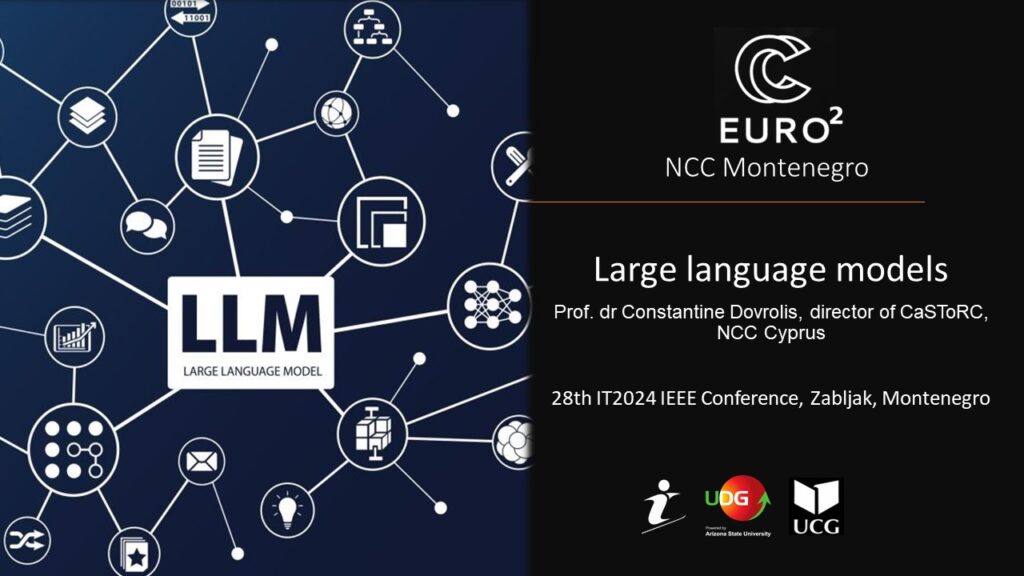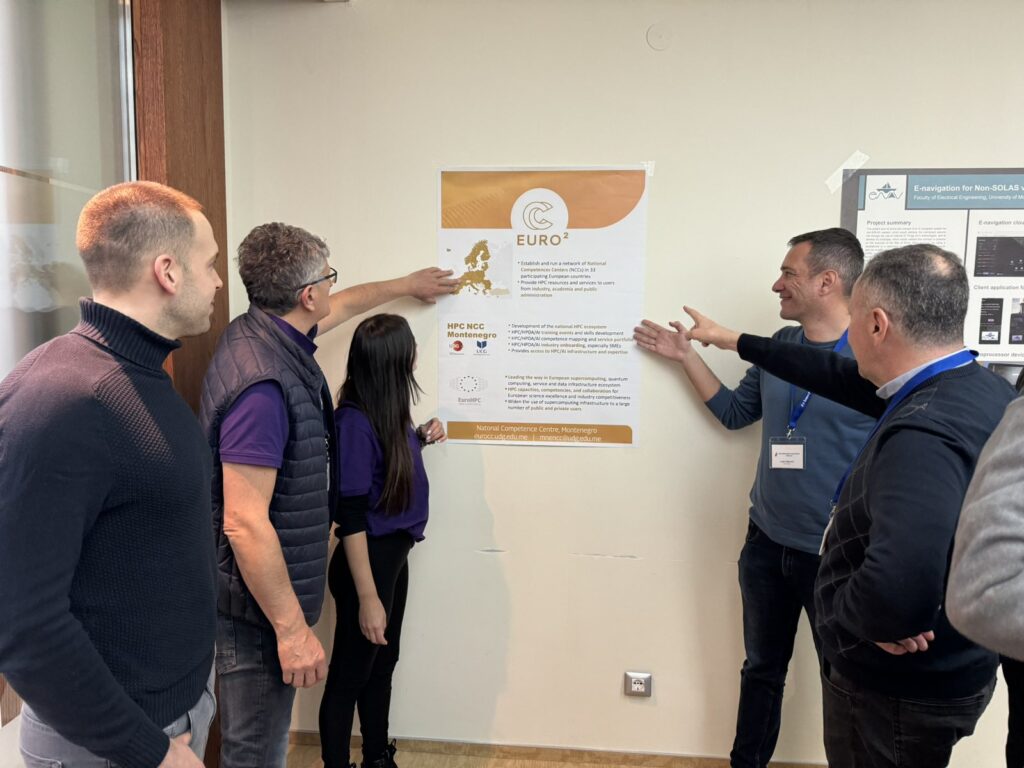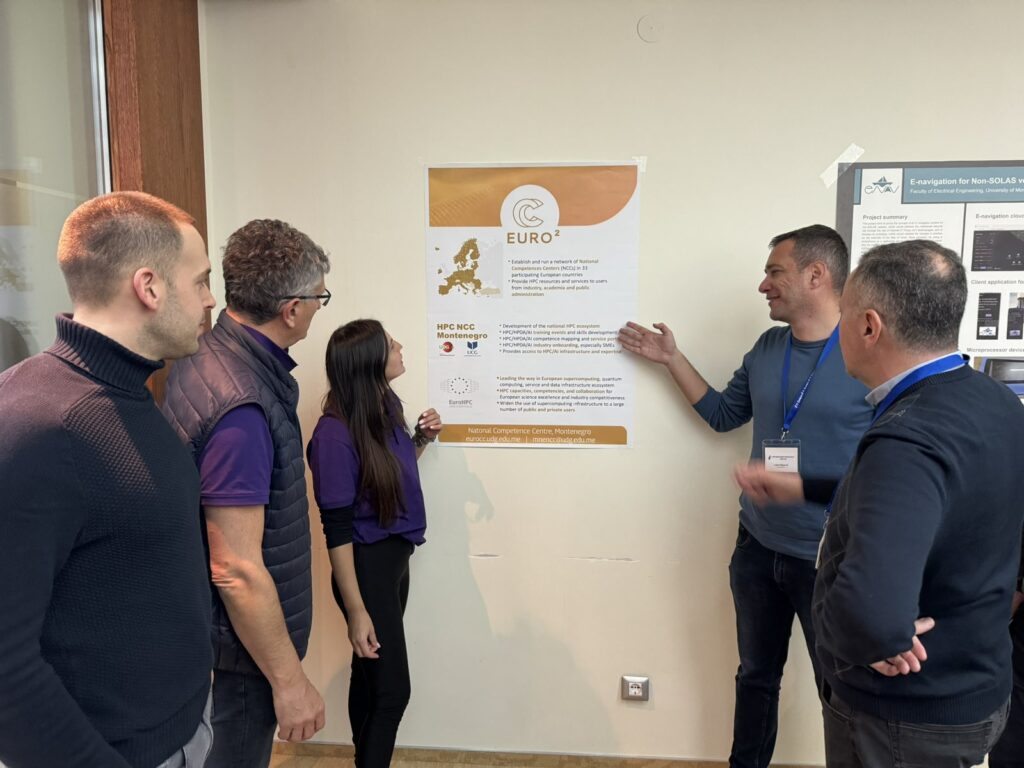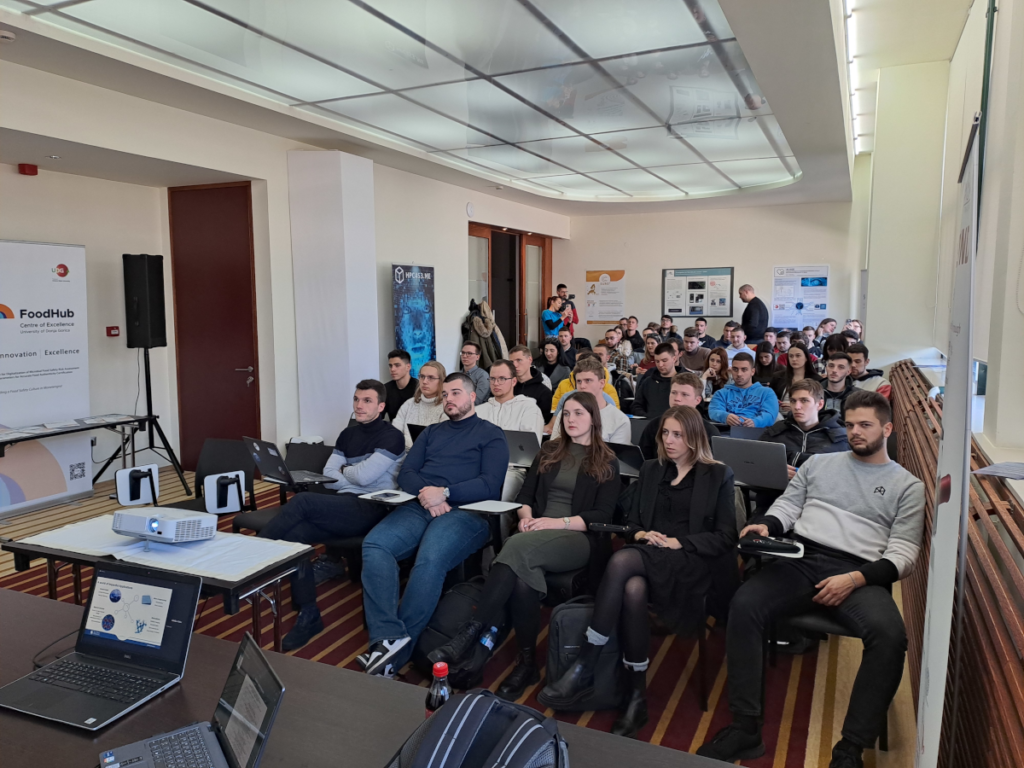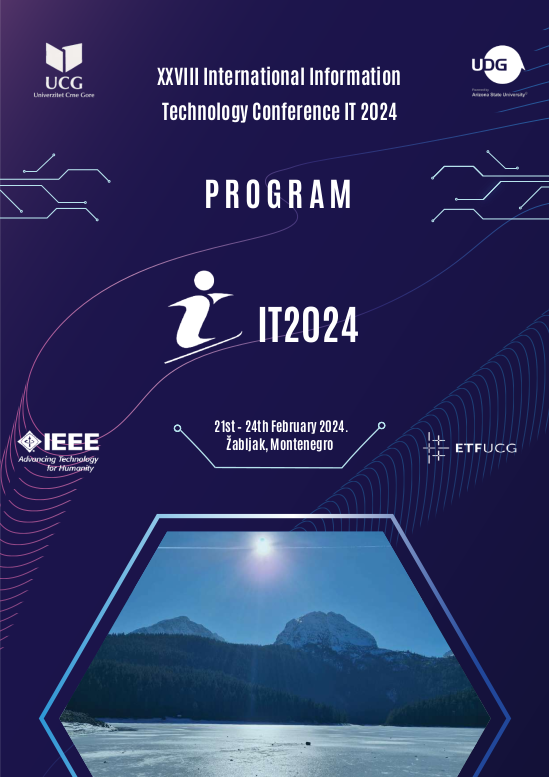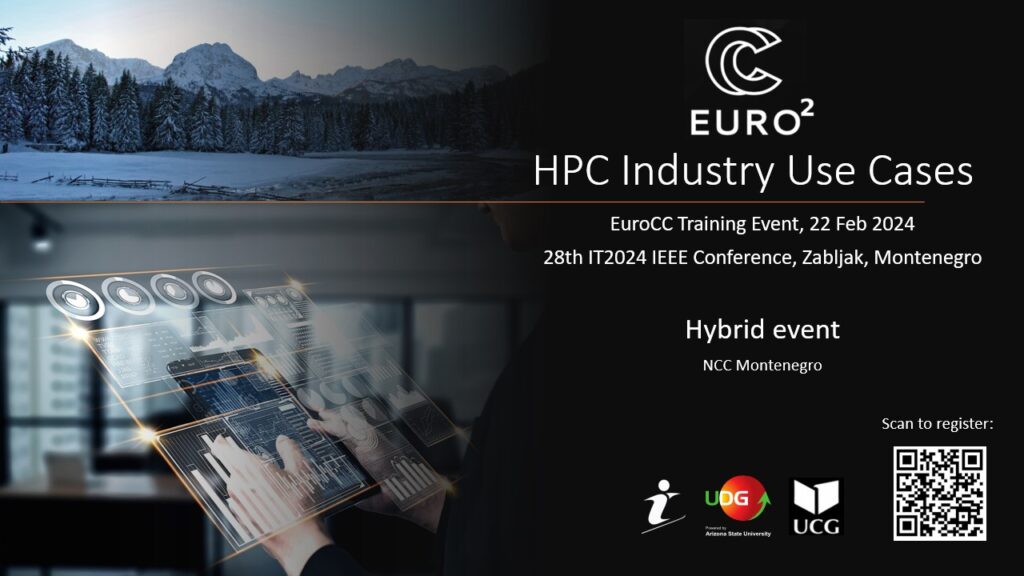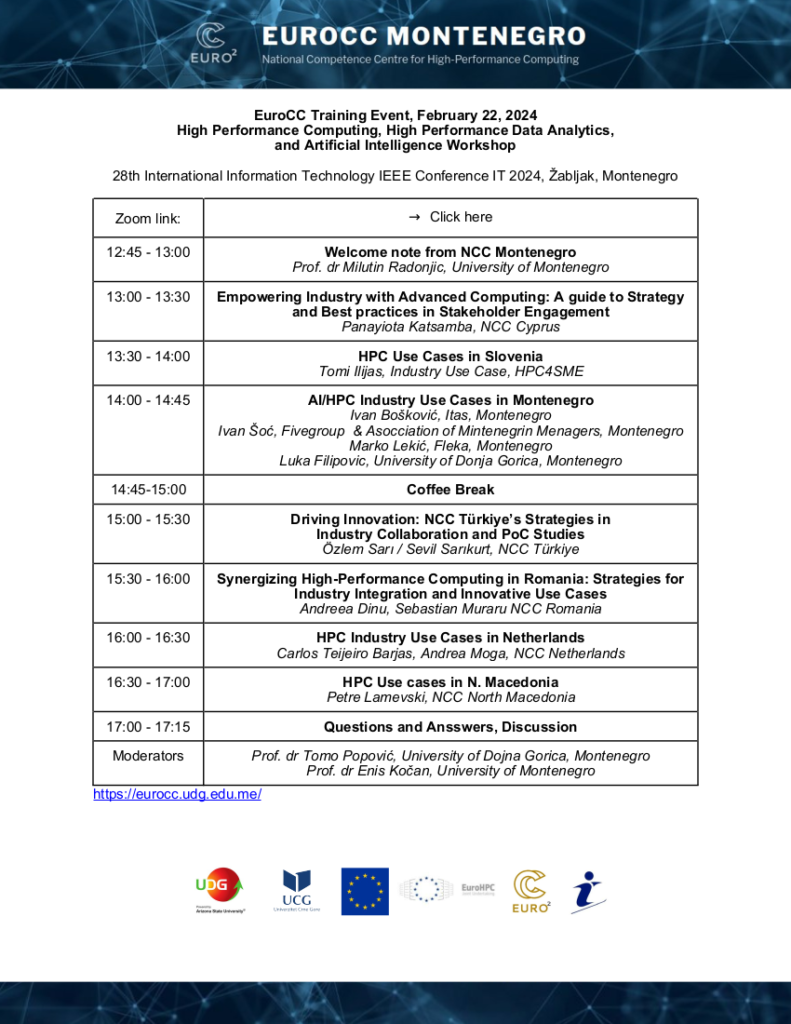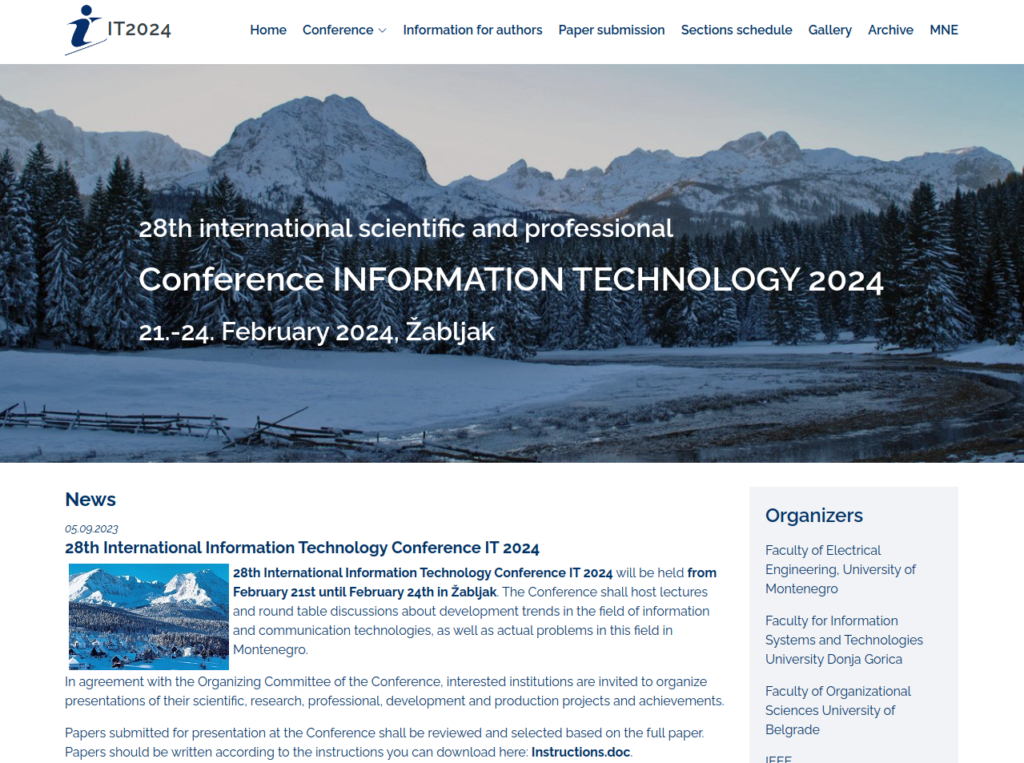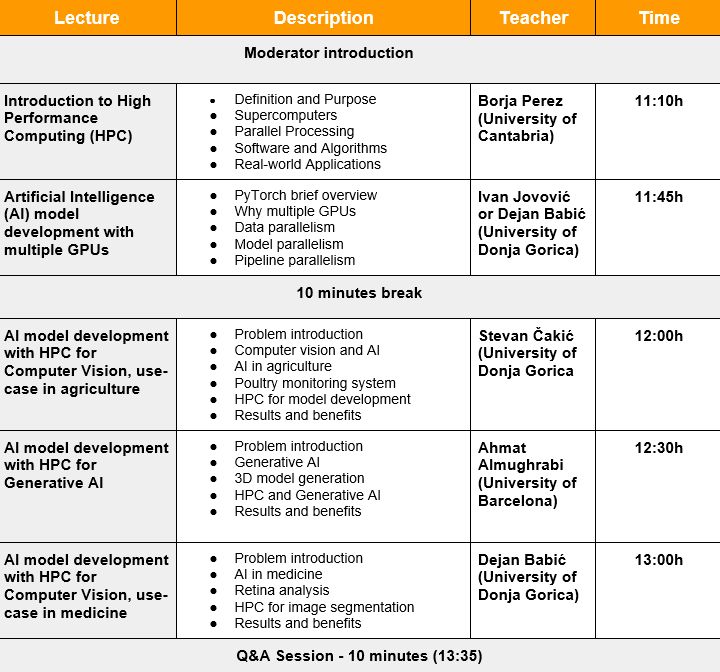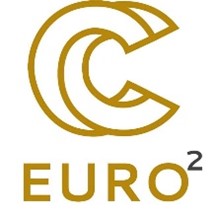XXVIII international scientific and professional conference “Information technologies” was held from February 21 to 24, 2024 traditionally in Žabljak, organized by: University of Montenegro – Faculty of Electrical Engineering, University of Donja Gorica – Faculty of Information Systems and Technologies, IT Society Crna Gora, University of Belgrade – Faculty of Organizational Sciences, IEEE Association and IEEE Section for Serbia and Montenegro, with the full support of the company Čikom from Podgorica. Presentations of author’s works and sessions were realized live in the hotel “Gorske oči”, hotel “Žabljak”, but also online. The conference gathered around 200 national and international participants. Link to conference website: https://www.it.ac.me/en/
Authors from 20 countries took part in the conference: Montenegro, Serbia, Bosnia and Herzegovina, Croatia, Slovenia, Hungary, Romania, Greece, Cyprus, Italy, Spain, Slovakia, Ukraine, Estonia, the United Kingdom, Turkey, Egypt, Jordan, Indonesia and the Philippines. The number of submitted author’s works was 101, of which 67 were accepted and presented, which were reviewed and selected on the basis of the complete work. Topics from various fields are covered such as: image and audio signal processing, acyclic graphs, blockchain technology, information security, standardization, application of artificial intelligence in various fields, management of unmanned vessels, virtual trade and knowledge transfer.\
A special session was dedicated to the presentations of the EuroCC2 project – National Competence Centers for HPC: https://eurocc.udg.edu.me/, the presentation of the Montenegrin Academic Digital Innovation Hub, supported by the DigNEST project : https://dignest.me/#/ , then TRACEWINDU: https://www.tracewindu.eu/, FoodHUB – Center of excellence for digitization of risk assessment in the field of food safety and precise certification of the authenticity of pre-harvested products: https://foodhub .udg.edu.me/, HPC4S3ME: https://hpc4s3me.udg.edu.me/, AI-AGE: https://ai-age.udg.edu.me/, STECCI: https://steccihorizoneu. com/, FishEUTrust: https://fisheutrust.org/, Solar Katun: https://digitalsmart.me/innovation-fund-of-montenegro-solar-katun-project/, Enav: https://enav.ucg. ac.me and COMMECT: https://www.horizoneurope-commect.eu/ . Representatives of Fleka, Čikom and FiveG Group participated in the training.
As part of the XXVIII scientific-professional conference, those present had the opportunity to participate in workshops, panels and trainings in the field of artificial intelligence, but also to hear the activities carried out by national competence centers in the field of high-performance computing from Cyprus, Slovenia, the Netherlands, Montenegro, Turkey , North Macedonia, Romania, participants in the EuroCC2 project. The project supports the development of innovative solutions by targeted participants in the private and public sector by providing support to interested end users in the use of HPC/HPDA/AI. Activities and innovative solutions based on the use of high-performance computing (HPC) and artificial intelligence (AI) for applications in industrial domains defined by the Smart Specialization Strategy (2019-2024) for Montenegro were presented.
Traditionally, the conference was successfully completed for the twenty-eighth year in a row, and it fulfilled its goal by pointing out the importance of a multidisciplinary overview of current events and the networking of a large number of university professors and associates, experts and young researchers in the field of information and communication technologies.


